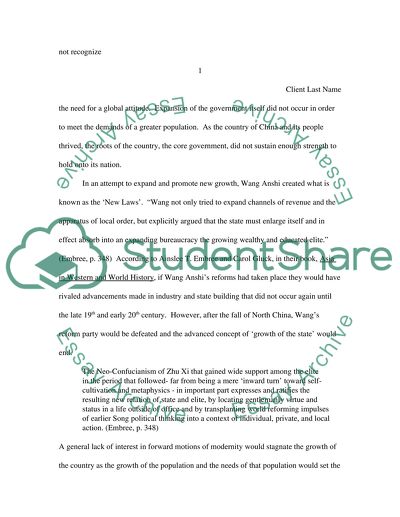Cite this document
(Chinese Dynasties of the Mongol Yuan and the Manchu Qing Case Study, n.d.)
Chinese Dynasties of the Mongol Yuan and the Manchu Qing Case Study. https://studentshare.org/history/1550150-why-were-the-manchus-so-much-more-successful-in-ruling-china-after-their-conquest-of-the-ming-than-their-predecessors-the-mongols-were-in-ruling-over-china-after-the-fall-of-the-song
Chinese Dynasties of the Mongol Yuan and the Manchu Qing Case Study. https://studentshare.org/history/1550150-why-were-the-manchus-so-much-more-successful-in-ruling-china-after-their-conquest-of-the-ming-than-their-predecessors-the-mongols-were-in-ruling-over-china-after-the-fall-of-the-song
(Chinese Dynasties of the Mongol Yuan and the Manchu Qing Case Study)
Chinese Dynasties of the Mongol Yuan and the Manchu Qing Case Study. https://studentshare.org/history/1550150-why-were-the-manchus-so-much-more-successful-in-ruling-china-after-their-conquest-of-the-ming-than-their-predecessors-the-mongols-were-in-ruling-over-china-after-the-fall-of-the-song.
Chinese Dynasties of the Mongol Yuan and the Manchu Qing Case Study. https://studentshare.org/history/1550150-why-were-the-manchus-so-much-more-successful-in-ruling-china-after-their-conquest-of-the-ming-than-their-predecessors-the-mongols-were-in-ruling-over-china-after-the-fall-of-the-song.
“Chinese Dynasties of the Mongol Yuan and the Manchu Qing Case Study”. https://studentshare.org/history/1550150-why-were-the-manchus-so-much-more-successful-in-ruling-china-after-their-conquest-of-the-ming-than-their-predecessors-the-mongols-were-in-ruling-over-china-after-the-fall-of-the-song.


